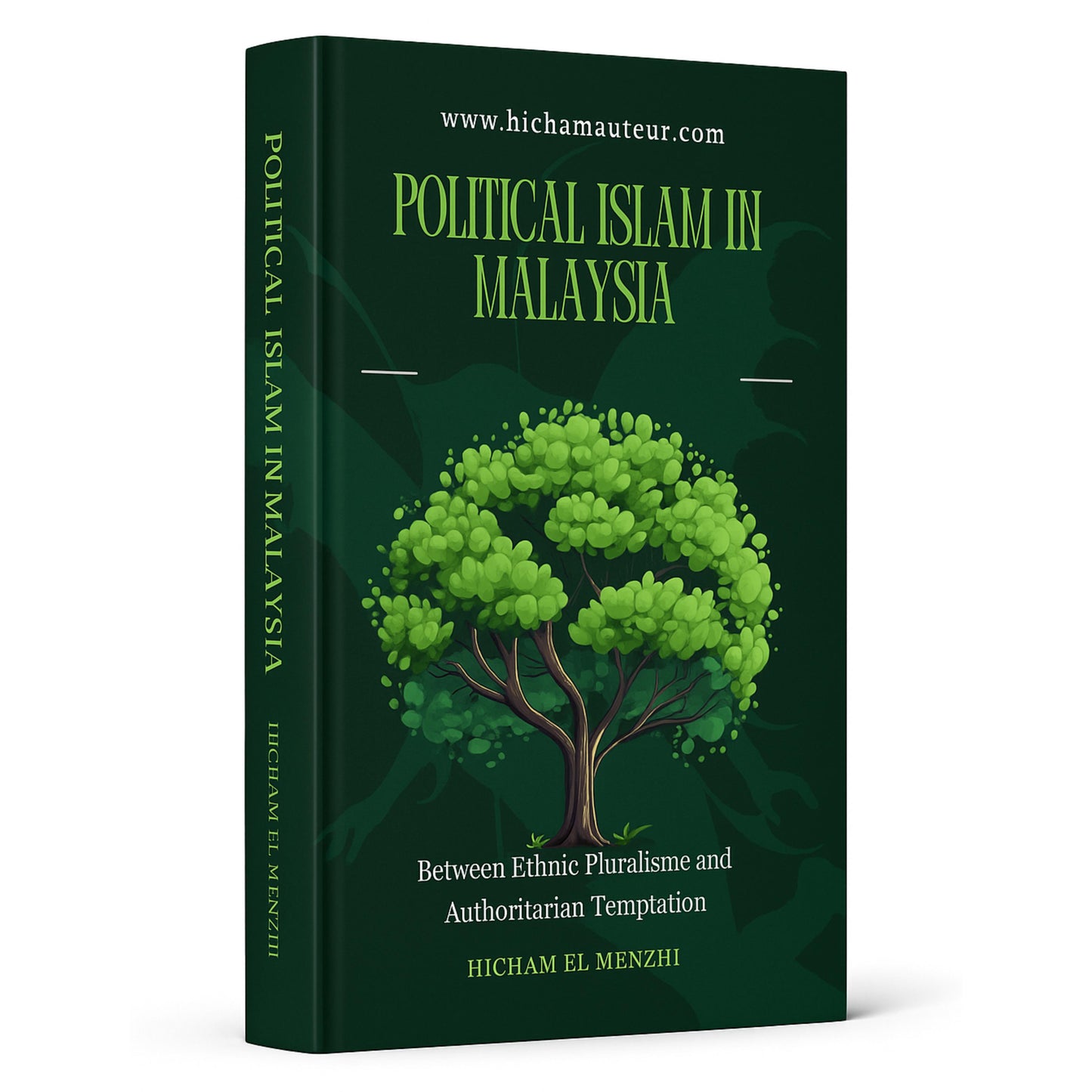HICHAM AUTEUR
Political Islam in Malaysia
Political Islam in Malaysia
Impossible de charger la disponibilité du service de retrait
This book offers a critical and nuanced analysis of the evolution of political Islam in
Malaysia, a country marked by the complex coexistence of a Malay-Muslim majority and
significant ethnic and religious minorities. Drawing on historical, legal, sociopolitical, and
cultural sources, the book highlights how Islam, far from being a simple religion, has
become a central instrument in nation building, the legitimization of power, and the
management of identities.
The book is structured in four complementary parts :
The first part traces the historical construction of state Islam from the British colonial
period to independence, showing how the Malay political elite associated Islam and
ethnic identity in a logic of supremacy (Ketuanan Melayu), while institutionalizing Islam
through the Syariah courts and state religious bodies.
The second part explores contemporary tensions between Islamism, multiculturalism,
and identities in crisis. It describes the rise of religious parties like PAS, the authoritarian
shifts of UMNO, and the conflicts between dominant Islamic principles and universal
values such as women's rights, freedom of conscience, and cultural diversity.
The third part gives voice to marginalized voices and resistance. Human rights activists,
censored artists, reformist intellectuals, committed Muslim women, and oppressed
converts all bear witness to another possible Islam—critical, ethical, and pluralistic—
fighting against political exploitation and authoritarian excesses.
The fourth part offers a regional perspective through comparisons with Indonesia and
Pakistan. It shows that Malaysia, although on a unique trajectory, shares common issues
with its neighbors: the role of religious elites, the Islamization of society, and tensions
between democracy and authority, and between modernity and tradition.
At the intersection of sociology, political science, and religious anthropology, this book
demonstrates that Malaysia's future will largely depend on its ability to reconcile Islam
and pluralism, authority and freedom, unity and diversity. Far from a simplistic discourse
on radicalism or moderation, it invites us to consider the complexity of a shifting political
Islam, with its many faces, between local dynamics and transnational influences.
This book is aimed at researchers, students, activists, decision-makers, but also at any
reader wishing to understand in depth the contemporary challenges linked to the
articulation between religion, power and diversity in the Muslim world.
Share


